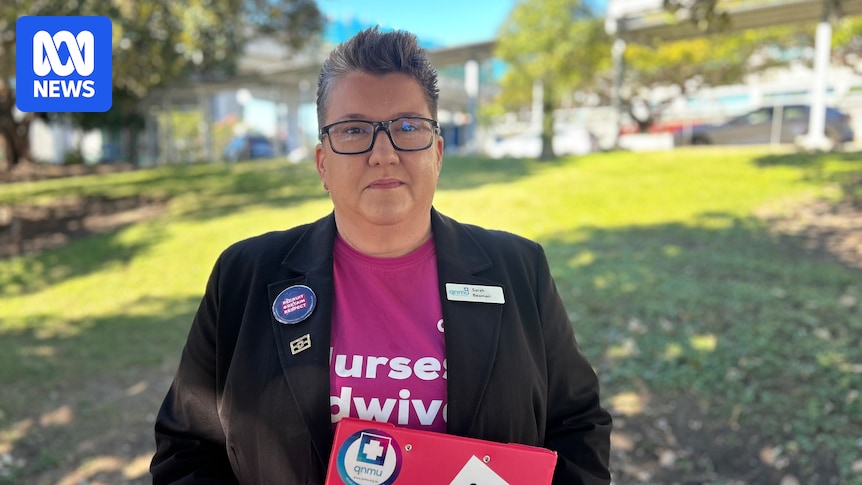
Tens of thousands of nurses and midwives across Queensland intensified their strike action on Tuesday, accusing the state government of “gaslighting” them as pay negotiations remain at an impasse. The industrial action, led by the Queensland Nurses and Midwives’ Union (QNMU), involves up to 45,000 healthcare professionals refusing non-clinical tasks at public hospitals and healthcare facilities statewide.
As part of this escalation, nurses are no longer working overtime without four hours’ notice, nor are they making and cleaning beds or transferring stable patients. Additionally, they have committed to taking their breaks in full. The union’s demands include a 13 percent pay rise over three years, while the government has proposed an 11 percent increase.
Union Accuses Government of Broken Promises
QNMU Secretary Sarah Beaman criticized the government for not honoring its pre-election promise to provide nation-leading pay and conditions. “Nurses and midwives are holding the system together through sheer will, determination, and skill, but they are over the government’s gaslighting and stalling tactics,” she stated.
“Maintaining nation-leading wages and conditions is not about nurses buying Gucci handbags. This is about them actually having safe working conditions,” Beaman emphasized.
Deputy Premier and Industrial Relations Minister Jarrod Bleijie refrained from commenting directly on the strike but assured that negotiations continue in good faith. “That protected action is a matter for the nurses. We continue to negotiate in good faith,” he noted, adding that he does not foresee the strike affecting other upcoming public sector wage negotiations.
Public Support and Broader Implications
Outside the Royal Brisbane and Women’s Hospital, patient Colin Hackwaad expressed support for the nurses, highlighting that the dispute extends beyond financial compensation. “I think everyone’s struggling, and [nurses] do some really awful shifts, 24-hour rotations, and through time, they’ve taken away a lot of the benefits,” he remarked.
Richard Harrison, visiting a relative at the hospital, praised the nurses’ dedication and supported the strike. “The care in that hospital is awesome,” he said. “Without them, where would we be?”
“As far as nurses emptying rubbish bins, I think there are better things they should be doing anyway,” Harrison added.
Negotiation Stalemate and Future Actions
The government claims the union’s recent offer was the first formal proposal received, a statement the union disputes. “This is an example of the government actually misleading [the public],” Beaman said, asserting that negotiations have been ongoing since January with multiple proposals discussed.
Under the government’s latest offer, up to 66 percent of nurses and midwives would not receive the nation-leading pay and conditions promised. “The premier was very clear that he says he respects nurses and midwives, but now he needs to walk the talk. Respect is more than words, it is actions,” Beaman urged.
Deputy Opposition Leader Cameron Dick echoed these sentiments, calling on Premier David Crisafulli to fulfill his commitment to healthcare workers. “Our hard-working frontline heroes in health just expect the premier to deliver on his promise which was nation-leading wages and conditions,” he stated.
Looking Ahead: Potential for Further Action
Despite the current stalemate, Beaman remains hopeful for a resolution. “There is the option to go to further actions and stage three. However, I am hopeful that the government will listen,” she said.
As negotiations continue, the situation underscores the broader challenges facing public sector wage agreements in Queensland. With over 27 agreements set to be negotiated in the next three years, the outcome of this dispute could set a precedent for future negotiations.






